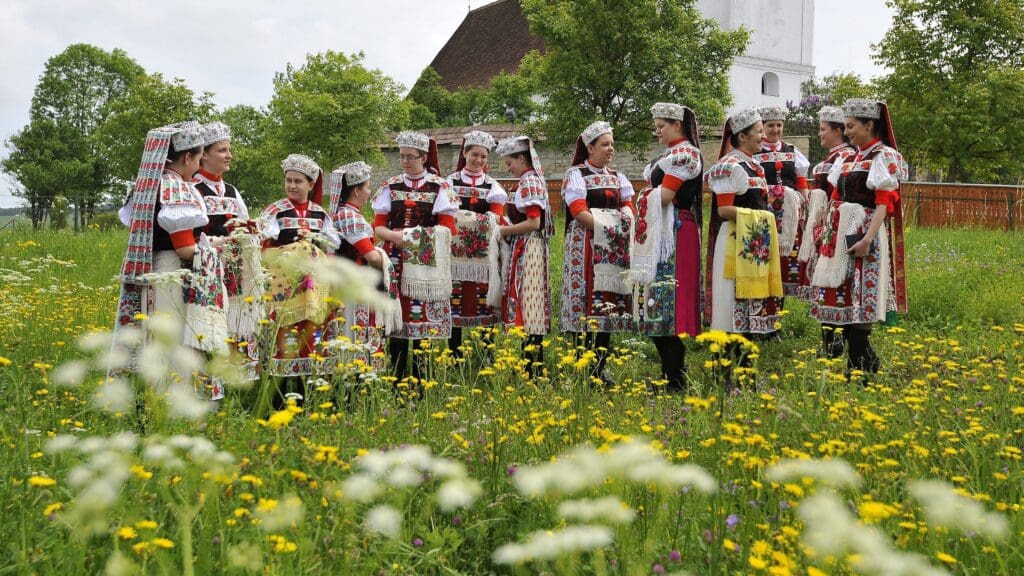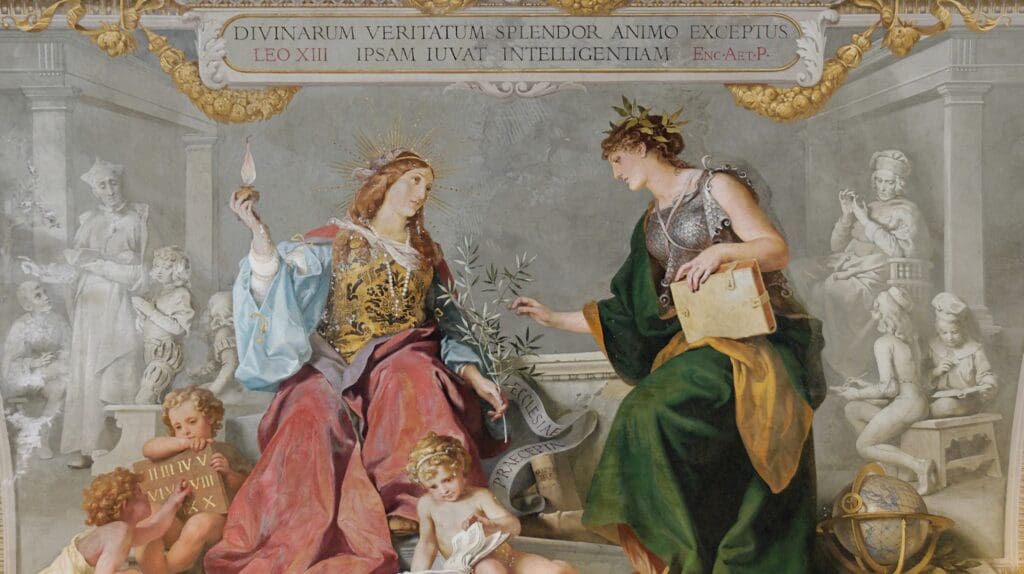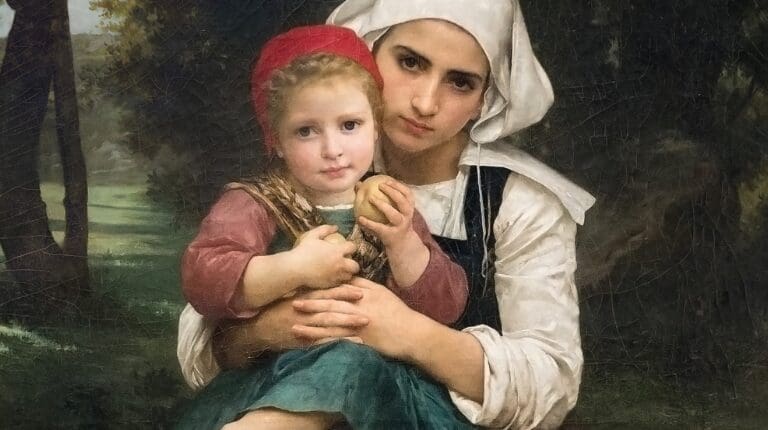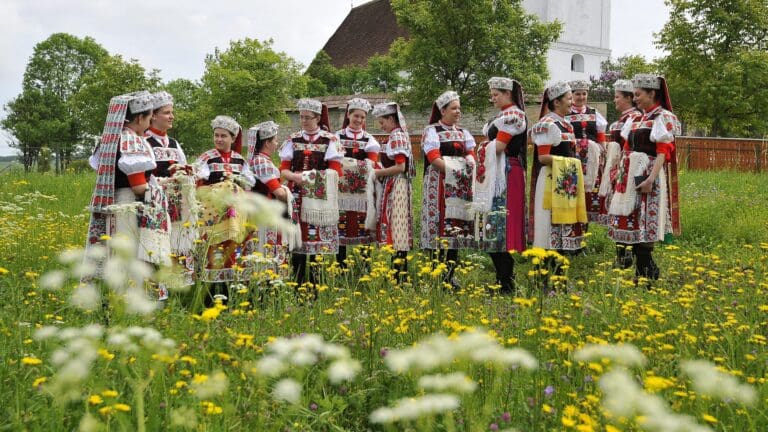May Day is a public holiday in Hungary. If one wants to sum up what this day is about, one might say that 1 May is a day when you don’t have to go to work, you can spend time with your family and enjoy all kinds of outdoor activities. In this context, even a staunch conservative can’t have a problem with taking a break from work.
Ideologically, however, the situation is different. In 160 countries around the world, May Day is a socialist celebration of work and workers. For us conservatives, it has always been a bittersweet ‘holiday’ because it is essentially a holiday based on a world view at odds with our own. Still, the idea of valuing hard work and its fruits is a Christian conservative idea. ‘Ora et labora’, pray and work, as the Benedictine wisdom goes.
To complicate matters further, 1 May has been a Catholic feast day with similar content since 1955, following a decree by Pope Pius XII, in honour of St Joseph the Worker, the patron saint of workers. Thus May Day can truly be called the only holiday in the world that is international socialist and Christian at the same time.
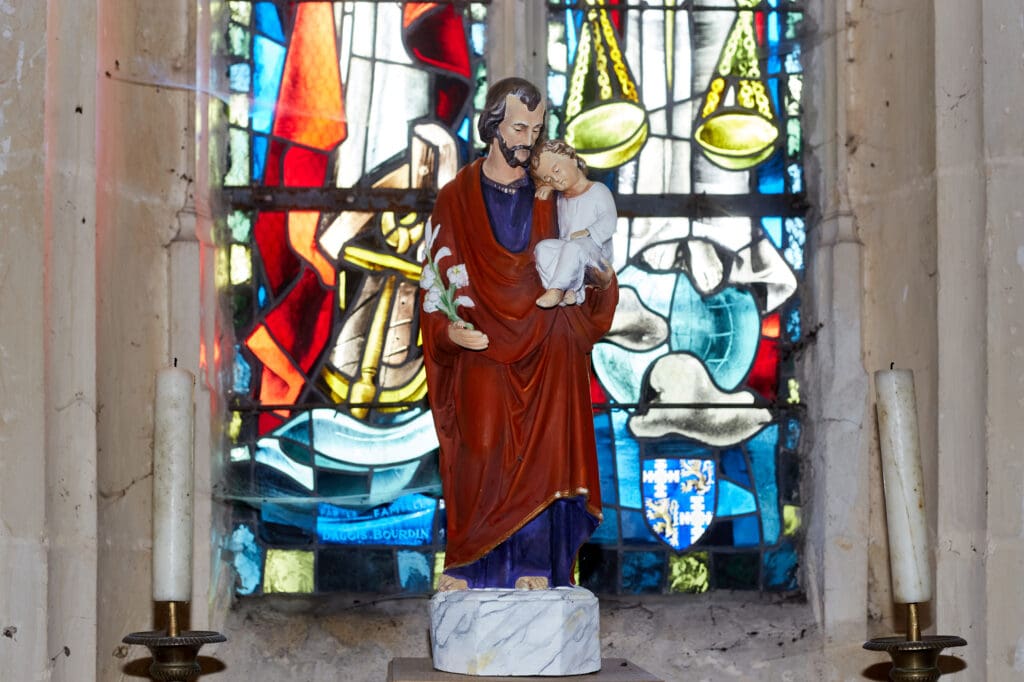
In the USA and Canada, Labour Day falls on the first Monday in September. However, the date of May Day itself is linked to the United States, because on 1 May 1886, the workers’ unions in Chicago organized a strike to demand the introduction of the eight-hour workday. 350,000 workers took part in a series of demonstrations and strikes over several days. On the fourth day of the protests, on 4 May, local anarchist leaders called a protest rally in Haymarket Square, but anarchists who mingled with the protesting workers threw a bomb at the police, who responded by opening fire. Dozens of wounded people were left at the scene, not going to hospital for fear of arrest. Perhaps it was this tragedy that caused the holiday to be marked on a different day in America.
It is interesting to note that this left-wing holiday was made a paid holiday in Germany by Adolf Hitler when he came to power in 1933, while Benito Mussolini chose to ban it.
As far as Hungary is concerned, Labour Day has been a public holiday since 1946. After the regime change of 1990, the name of International Workers Day, Labour Day, was retained. As in the vast majority of countries in the world, it is still a paid holiday in Hungary.
Of course, we also have folk traditions linked to 1 May. The most notable is the Maypole mounting, the placing of a cut, decorated tree by young men in front of the house of the woman they love. There are also customs that were adopted during the communist dictatorship, such as the ‘Majális’, an open-air festival with a merry-go-rounds a Ferris wheel, dodgems, grilling, and the inevitable communist menu: ‘sausages and beer’.
In socialist times 1 May was a major political propaganda event, with a parade held in the capital, Budapest, with people, including students, marching in a compulsorily festive mood in front of the tribune where the Communist leaders stood—in veritable Soviet style.
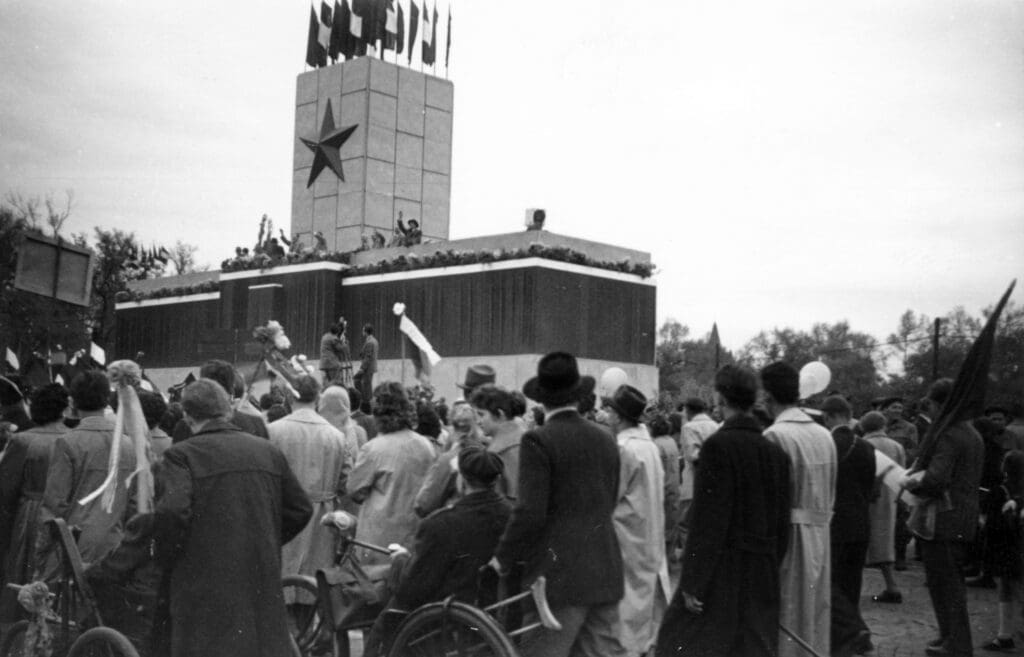
Later, from the 1970s, during the times of the ‘soft dictatorship’, very popular open-air concerts were held on 1 May in Budapest, usually on the hilly slopes of the Tabán quarter of Buda.
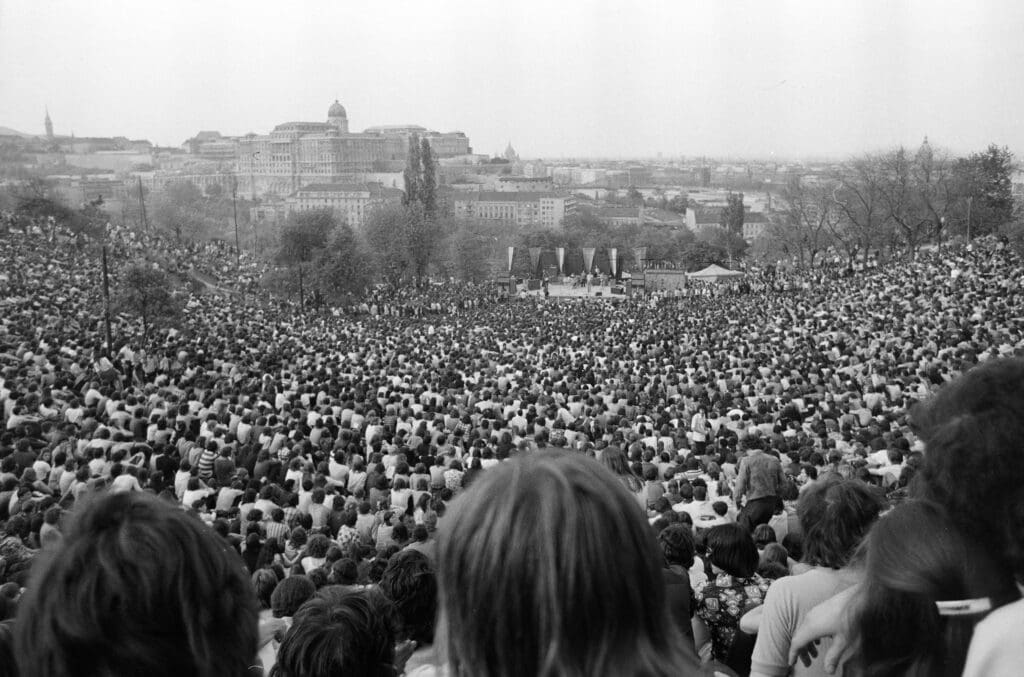
Luckily, no one is forced to march on 1 May any longer. but the holiday has remained a major element of leftist universe to this day. Especially in an election year, the past comes alive in Budapest. All the left-wing parties and politicians gather in the City Park in Budapest today, too, and deliver incendiary speeches to the people assembled, most of whom are just trying to have fun on a sunny spring day and enjoy a day off work. This year, with both European and local elections taking place at the same time, the hustle and bustle is particularly intense.
But it’s not just socialist politicians who hold rallies and festivals on Labour Day. There’s another political force at work, too—the far right. The Mi Hazánk party has a long tradition of holding traditional majális events. This year, they are gathering in the 11th district Bikás Park. If one visits both, they can discover a fascinating contrast between the audiences attending the events of the two political extremes. At the leftist ones, there are mostly -left, woke, metropolitan youth and communist pensioners; at the other, bald men dressed in black and wearing Hungarian folk vests, with their happy Hungarian families. I’ve been visiting both for a long time, and as a political junkie, I have found it an incredibly exciting experience.
The attentive reader will notice that I have made no mention of Fidesz so far, the party that has been governing Hungary for fourteen years with a two-thirds majority. It is because they do not hold May Day events any more. But this was not always the case! In the Socialist-ruled Hungary of the 2000s, there were Fidesz May Day festivals, with huge crowds turning out to listen to Hungarian bands and those lucky enough, to have a beer with Viktor Orbán.
Orbán Viktor, Nagy Feró, Kormorán – majális 2008
Uploaded by seckerland on 2009-06-09.
So while a true conservative should not celebrate a communist holiday, there is no doubt that, as noted at the beginning of this article, respecting hard work and valuing all those who contribute to their communities is a very conservative idea. So let’s celebrate that idea, and have fun, and perhaps even eat sausages and drink a beer or two on this day.
Happy May Day to all!


